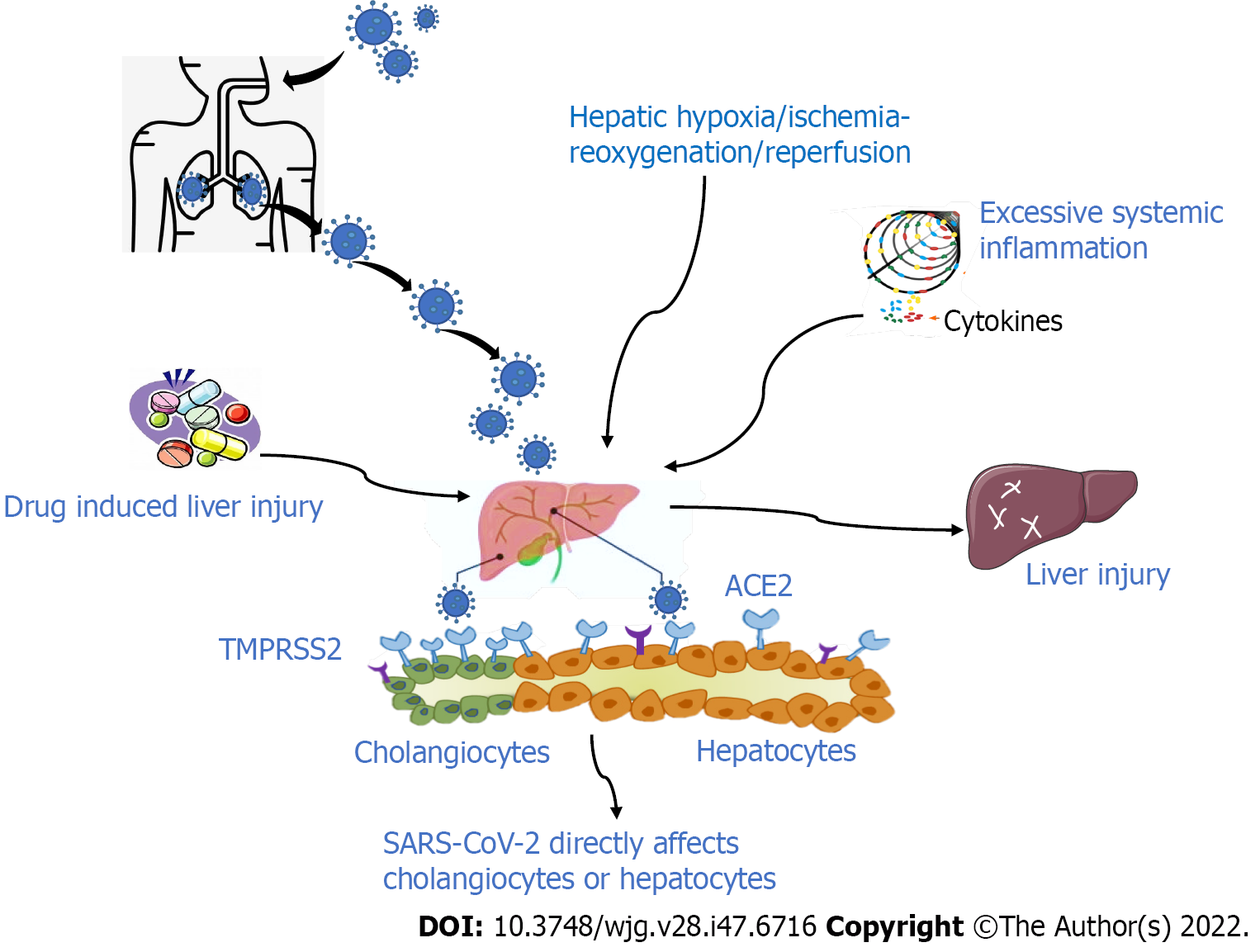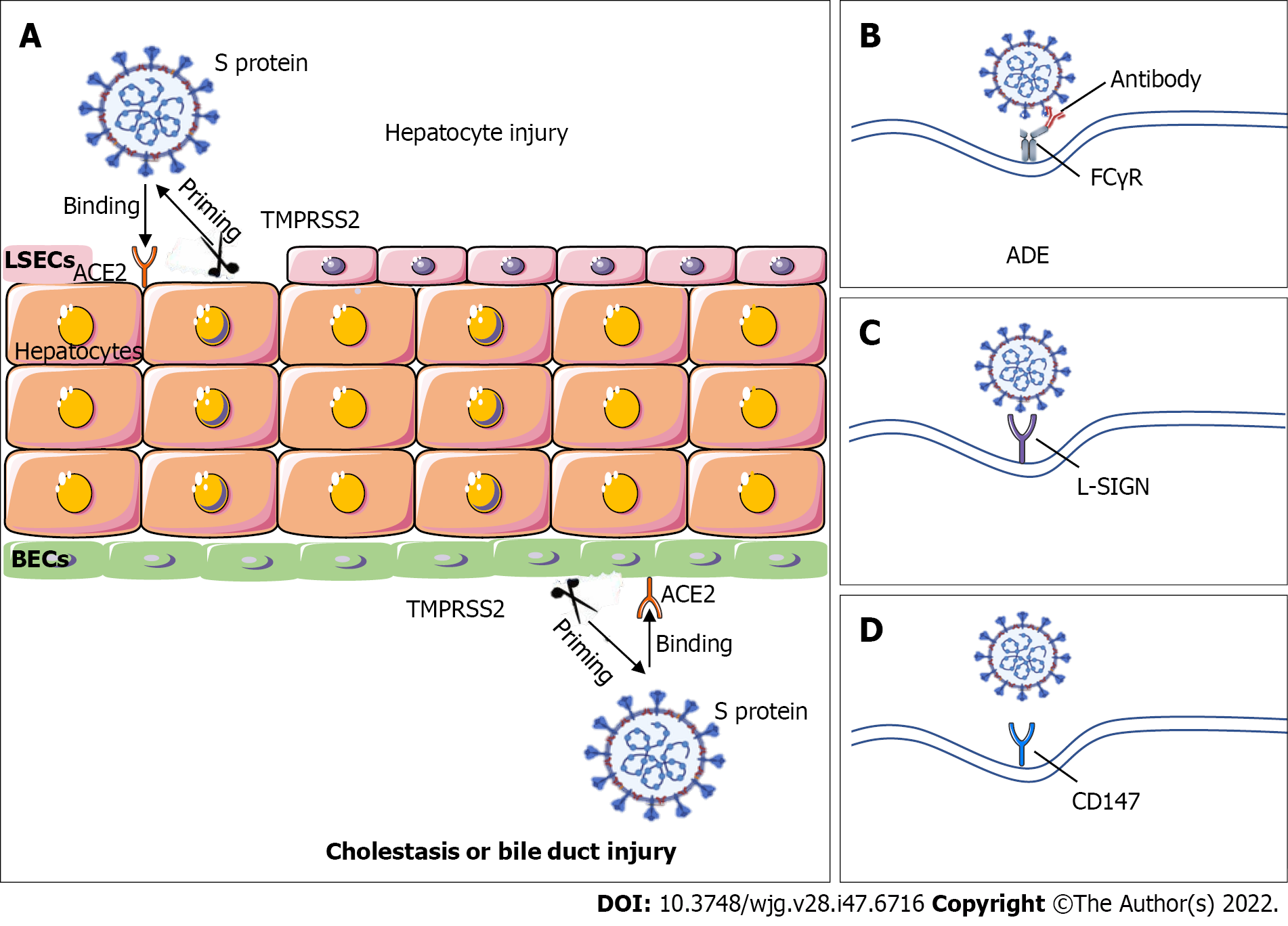Copyright
©The Author(s) 2022.
World J Gastroenterol. Dec 21, 2022; 28(47): 6716-6731
Published online Dec 21, 2022. doi: 10.3748/wjg.v28.i47.6716
Published online Dec 21, 2022. doi: 10.3748/wjg.v28.i47.6716
Figure 1 Mechanisms of liver injury caused by SARS-CoV-2.
The mechanisms include direct hepatoxicity (severe acute respiratory syndrome coronavirus 2 affects cholangiocytes or hepatocytes) or indirect hepatic injury (drug-induced liver injury, excessive systemic inflammation and cytokine storm, and deterioration of pre-existing liver disease). SARS-CoV-2: Severe acute respiratory syndrome coronavirus 2; ACE2: Angiotensin-converting enzyme 2; TMPRSS2: Transmembrane serine protease 2.
Figure 2 Possible pathways of SARS-CoV-2 entering into the liver.
A: Severe acute respiratory syndrome coronavirus 2 (SARS-CoV-2) infects host cells through angiotensin-converting enzyme 2 (ACE2) and transmembrane serine protease 2 (TMPRSS2) receptors by its S protein. Direct SARS-CoV-2 infection targeted to hepatocytes or billiary epithelial cells results in hepatocyte injury or bile duct injury; B and C: CD147 (B) and L-SIGN (C) may be alternative receptors for SARS-CoV-2 entry into the liver; D: Antibody dependent enhancement is a pathway which can enhance interaction of virus-based antibody and the CR and/or FC receptor complements further making virus easily entry and infection. ACE2: Angiotensin-converting enzyme 2; TMPRSS2: Transmembrane serine protease 2; LSECs: Liver sinusoidal endothelial cells; BECs: Biliary epithelial cells.
- Citation: Hu WS, Jiang FY, Shu W, Zhao R, Cao JM, Wang DP. Liver injury in COVID-19: A minireview. World J Gastroenterol 2022; 28(47): 6716-6731
- URL: https://www.wjgnet.com/1007-9327/full/v28/i47/6716.htm
- DOI: https://dx.doi.org/10.3748/wjg.v28.i47.6716










